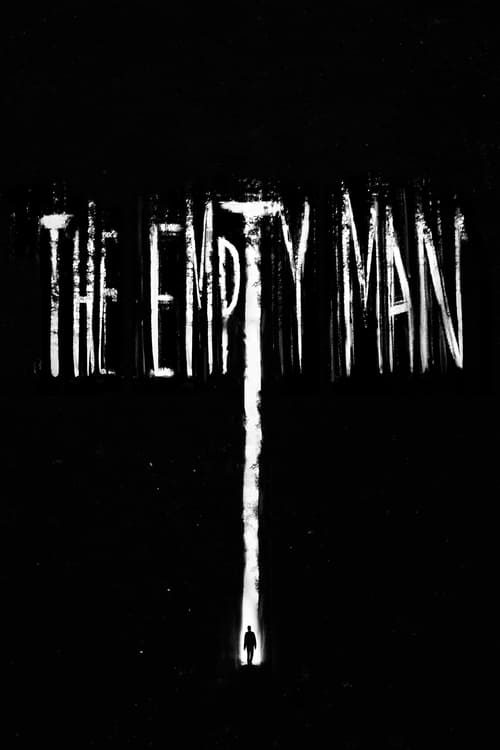The Empty Man

Plot
The Empty Man is a gripping horror thriller that delves into the complexities of trauma, grief, and the supernatural. James Lasombra, a retired detective, is pulled back into the world of law enforcement by a personal request from a friend, whose daughter has gone missing under mysterious circumstances. This turn of events forces James to confront the shadows of his past, and unravel the enigmatic threads of a case that threatens to consume him whole. The story begins with James, a man who appears to be enjoying a quiet life after his retirement from the police force. However, beneath the surface, he is still reeling from a traumatic event that occurred during his career. This personal baggage becomes a crucial aspect of the narrative as James embarks on his investigation into the disappearance of his friend's daughter, Elizabeth. As James delves deeper into the case, he becomes obsessed with uncovering the truth behind the cryptic message scrawled on the bathroom mirror: "The Empty Man Made Me Do It." He is initially skeptical but, as the investigation progresses, he begins to experience strange and unexplained occurrences. Windows shatter without explanation, eerie whispers seem to emanate from the shadows, and an unsettling feeling of being watched becomes increasingly pervasive. These supernatural elements hint at the presence of a malevolent force that is manipulating events from behind the scenes. The Empty Man, a figure shrouded in mystery, is slowly revealed to be a malevolent entity with a twisted influence over those it touches. As James draws closer to the truth, he finds himself on a perilous journey into the heart of darkness, forced to confront his own demons and the accumulated trauma of his past. One of the central themes of The Empty Man is the lasting impact of trauma on individuals. James's past is gradually revealed through a series of flashbacks and fragmented memories, which illustrate the devastating effects of his experiences on his personal and professional life. His obsession with solving the case serves as a form of catharsis, allowing him to confront the pain he has long suppressed. Meanwhile, the local sheriff and his deputies are hot on the trail of James, who has bent the rules to investigate the disappearance of Elizabeth. They are frustrated by James's refusal to follow protocol, and their skepticism about the supernatural elements of the case only serves to deepen James's isolation. As the stakes escalate, James's preoccupation with the case takes a toll on his relationships. His granddaughter is worried about his well-being, and his therapist is concerned that James is not addressing his underlying issues. His isolation becomes total, and he is haunted by visions of the Empty Man, which seem to represent the accumulation of his pain and anxiety. The Empty Man is, in part, a retelling of a classic horror theme: the concept of possession. However, whereas in traditional horror stories the malevolent entity is often an external force, here it is rooted in the protagonist's own psyche. This narrative twist introduces a level of psychological complexity, blurring the lines between reality and the supernatural. Ultimately, James is forced to confront the dark corners of his own mind, where the Empty Man resides. In a climactic and unsettling confrontation, James must choose between embracing the light or succumbing to his own personal demons. The ending of The Empty Man is surreal and disquieting, leaving the viewer with a sense of unease and uncertainty about the true nature of reality. The Empty Man is a haunting, unsettling thriller that probes the depths of human trauma and the blurring of reality and the supernatural. Through a gripping narrative, James Lasombra's complex and troubled character is revealed, forcing the viewer to confront the darkest recesses of the human psyche. The film is a dark, atmospheric exploration of the emotional scars we carry and the terrible cost of letting our pain and trauma accumulate unchecked.
Reviews
Karen
If it weren't so long, I might have given it four stars; I quite liked the premise. But the middle section was just so dull and unengaging. Over two hours really wasn't necessary. However, the opening 20 minutes with that opening sequence were really captivating. It reminded me a bit of the game "Kholat". If the whole movie had developed in that atmosphere, I would have absolutely loved it.
Zion
Another excursion into Lovecraftian madness, complete with snow-capped mountains, cavernous skulls, prayer wheels, and precarious rope bridges. Then it descends into a "cursed object" narrative: the first day you hear him, the second day you see him, the third day you ARE him. The protagonist's defiant catchphrase is great: "I'm from San Francisco, I've seen it all!" The story is decent enough, but as an adaptation of a graphic novel, it's visually uninspired and lacks ambition. Stretching it out to a bloated two-plus hours only adds to the frustration.
Paisley
The visuals are alright in places. Overall, the pacing is a little slow, and it's not particularly engaging.
Lucy
The first 20 minutes are great, with an intensely eerie vibe. However, when it delves into the urban legend aspect, it unfortunately descends into something akin to r/nosleep. I doubt the original comic was this cliché. A bit disappointed as it went on, feeling like the atmosphere of the snow mountain section was wasted. Perhaps, limited by experience, this is the extent of an average horror writer.
Camille
This movie is actually quite something. It starts off as psychological thriller, quickly shifts to suspense, then a "Ouija Board" horror flick, followed by cult horror, and finally Lovecraftian horror... It really throws a lot at you. The production is undeniably rough, a waste considering the amount of money spent.
Recommendations




